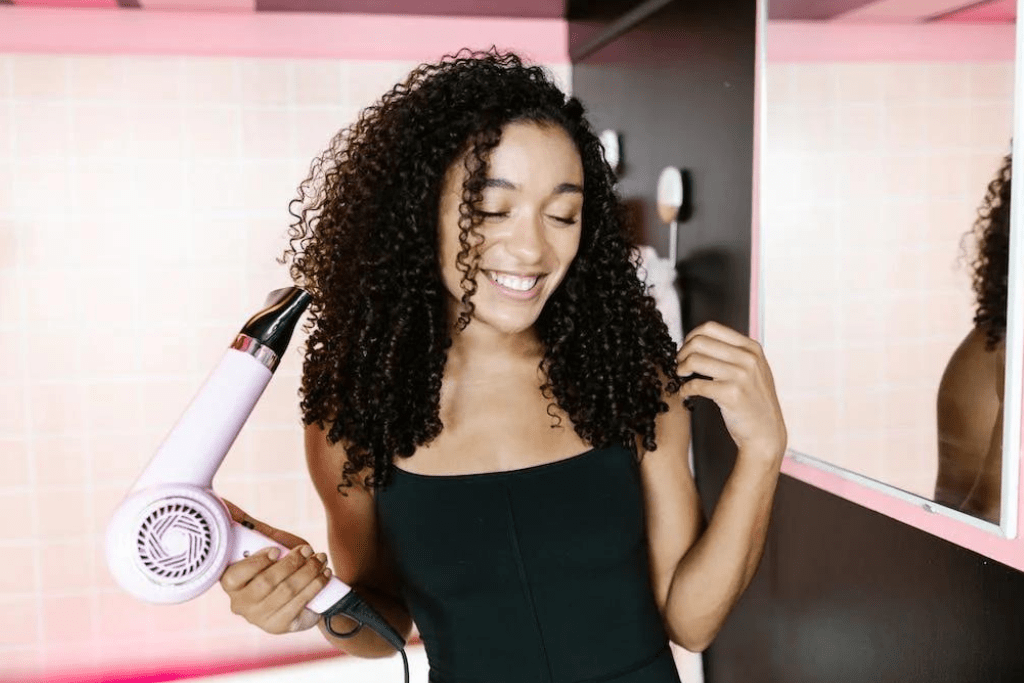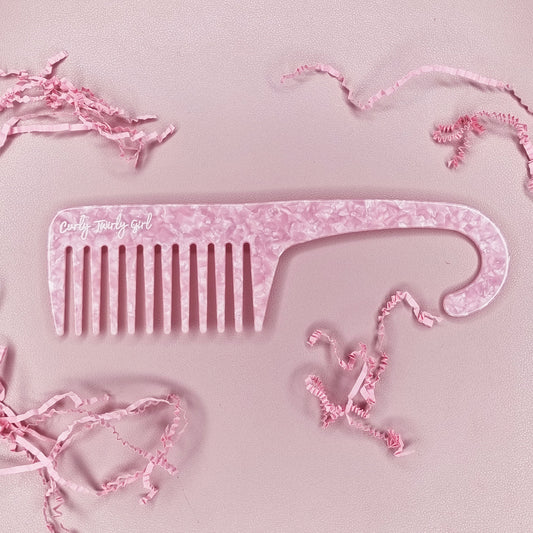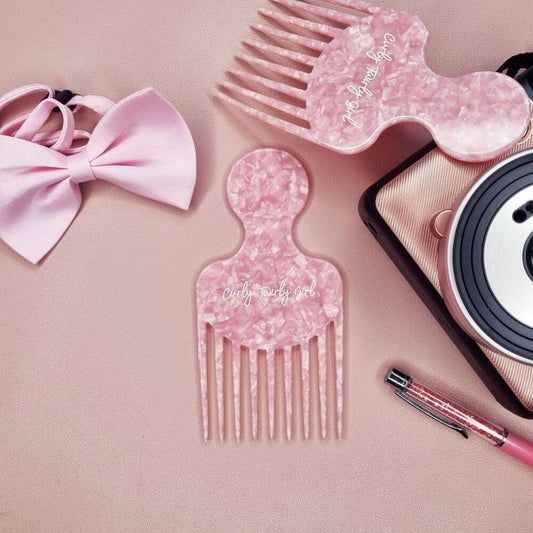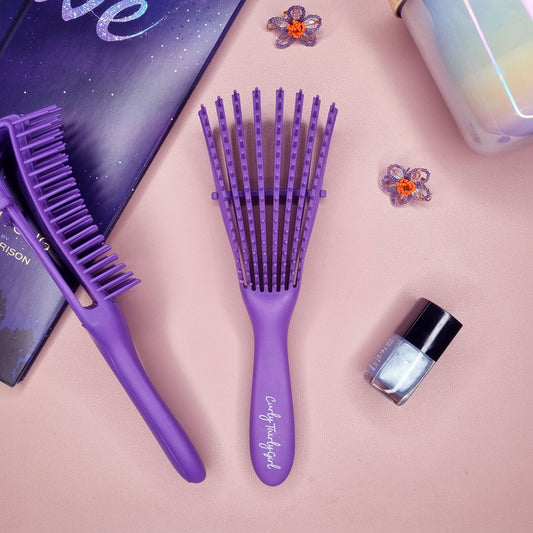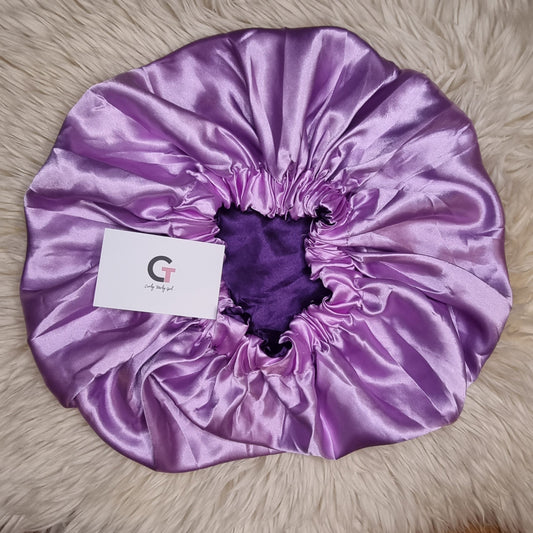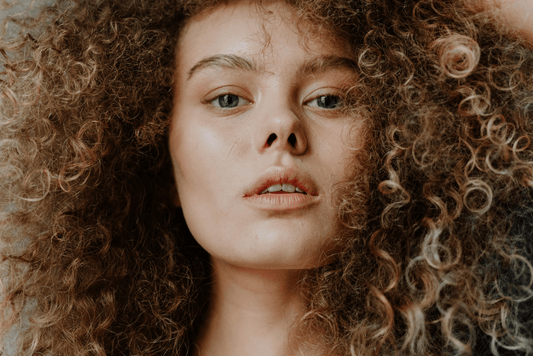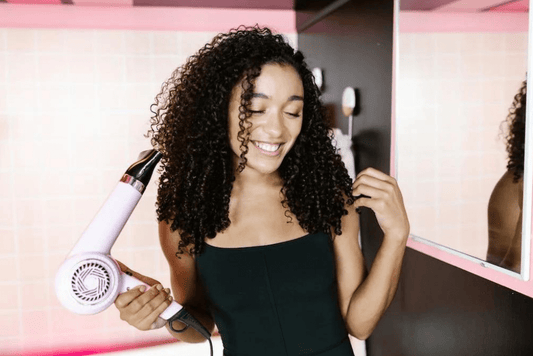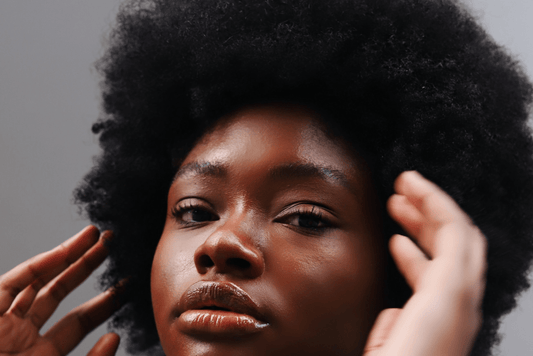For those with curly hair, the choice between air drying and diffusing can significantly impact the health and appearance of your locks.
Whether you're team air dry or team diffuse, in this detailed guide, we'll explore the nuances of both methods to finally answer the old age debate in the curly community - which is better? Air drying vs diffusing.
Is Air Drying Better Than Diffusing?
Air drying curly hair refers to the natural drying process without the use of heat styling tools, allowing curls to dry on their own. On the other hand, diffusing utilises a blow dryer with a diffuser attachment to speed up the drying process while maintaining the integrity of the curls. The choice between air drying and diffusing depends on individual preferences, hair type, and desired results. Neither method is inherently better than the other; it's more about what works best for your hair and lifestyle.
Both techniques have their pros and cons, and the choice between them depends on individual preferences, lifestyle, and desired outcomes for one's curly hair.
Air Drying Curly Hair
Involves allowing the hair to dry naturally without the use of heat styling tools, allowing curls to form and set in their unique patterns, depending on their curl type.
Pros of Air Drying:
- Gentle Process: Air drying is gentle on the hair, reducing the risk of heat damage.
- Enhanced Curl Definition: Allows curls to form naturally, showcasing their unique texture.
- Minimal Effort: Air drying requires minimal effort; simply letting the hair dry without the need of additional curly hair tools.
- Cost-Effective: No need for specialised tools or electricity, making it a cost-effective drying method.
- Low Maintenance: Ideal for individuals seeking a low-maintenance hair care routine.
- Preserves Natural Pattern: Preserves the natural curl pattern without external interference.
Cons of Air Drying
- Extended Drying Time: Air drying can take a longer time compared to diffusing.
- Potential for Flatter Roots: Some individuals may experience flatter roots and less volume.
- Weather Dependency: Air drying effectiveness may be influenced by external factors such as humidity.
- Patience Required: Requires patience, as the drying process can be slower.
- Limited Styling Control: Less control over the styling process compared to diffusing.
- Potential for Frizz: Depending on external conditions, air drying may contribute to frizz in some cases.
-
Shrinkage: Air drying can contribute to shrinkage. Although shrinkage in curls often means healthy hair if you want your hair to look longer than this process may not be for you.
Tips for Ary Drying
To safely air dry your hair and achieve optimal results, start by:
- Applying a quality leave-in conditioner or curl-enhancing product to nourish and hydrate your curls.
- Gently scrunch your hair to encourage the natural curl pattern while minimising frizz, and consider using a microfiber towel or a soft cotton T-shirt to blot excess water without causing damage.
- Choose a suitable air-drying environment, avoiding excessive wind or direct sunlight that could potentially affect the hair's moisture levels. Be patient during the process to allow your curls to set naturally.
- Additionally, consider the density and thickness of your hair, as individuals with denser curls might benefit from more careful drying techniques.
Air dried curly hair is favoured by those who wish for a more defined and uniformed curly look.

Diffusing Curly Hair
Is particularly favoured for those seeking faster results and enhanced volume, as the diffuser helps distribute air evenly, preventing flattening of the roots.
Pros of Diffusing:
- Faster Drying Time: Diffusing speeds up the drying process, making it a time-efficient option.
- Enhanced Volume: Ideal for achieving added volume and preventing flattened roots. This method is the go-to for those who love 'big hair'.
- Controlled Styling: Allows for controlled styling, especially useful for those with specific curl patterns.
- Versatility: Suitable for various hair types, including those with finer hair seeking more volume.
- Reduced Frizz: Proper diffusing techniques can help minimise frizz by evenly distributing heat and airflow.
- Ideal for Busy Lifestyles: Beneficial for individuals with busy schedules who need a quicker drying solution.
- Curl Definition: Helps define curls and enhance their natural shape during the drying process.
Cons of Diffusing:
- Potential for Heat Damage: Incorrect use or excessive heat with a heat protector can lead to damage over time and hair growth.
- Learning Curve: Some individuals may find diffusing techniques initially challenging.
- Dependency on Equipment: Requires a blow dryer with a diffuser attachment, which may not be convenient if you are away from your normal environment.
- Less Natural Look: Some individuals prefer the more natural appearance achieved through air drying.
- Not Always Travel-Friendly: Diffusers may not be easy to carry, making it less practical for those on the go.
- Can Disrupt Curl Pattern: If not done carefully, diffusing may disrupt the natural curl pattern or create frizz.
- May Require Product Application: Some may need to apply styling products before diffusing, adding an extra step to the process.
Tips for Diffusing
For safely diffusing curly hair and achieving desirable results, start by:
-
Applying a heat protectant or styling product to shield your hair from potential heat damage. Set your blow dryer to a low or medium heat setting to minimise the risk of excessive heat exposure.
- Section your hair into manageable portions before gently placing it into the diffuser. Utilise the "scrunch and pump" technique, lifting the hair towards your scalp, to enhance volume and define your curls.
- Keep the diffuser at a reasonable distance to prevent direct heat contact, and avoid prolonged exposure to a single area.
- Use a tool like an afro hair comb to gently lift the roots of your hair for added volume.
- Additionally, be mindful of the airflow intensity, opting for a lower setting if available.
By following these tips, you can safely diffuse your curly hair, promoting well-defined curls and minimising the risk of heat-related damage.
Diffusing curly hair is favoured by those who prefer a more voluminous curly look. For those who prefer the 'big hair' and more natural tousled look this is for you. 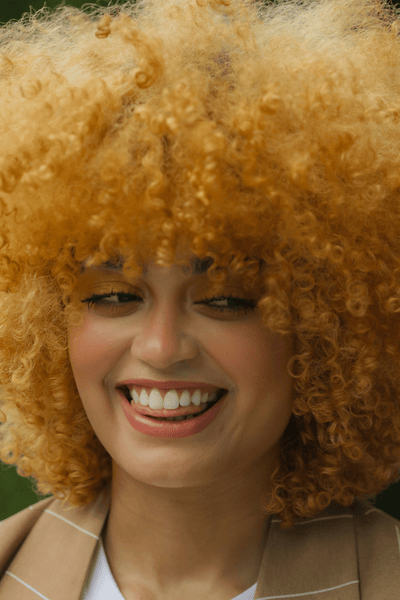
How Should You Dry Your Curly Hair?
In the debate between air drying and diffusing, the best method ultimately depends on your hair type, lifestyle, and personal preferences. If you cherish a low-maintenance routine and are patient, air drying might be the perfect fit. On the other hand, if you're seeking quicker results and enhanced volume, diffusing could be your go-to method.
By incorporating our insights above you can confidently choose the drying method that aligns with your hair goals. Experiment with both techniques, and embrace the natural beauty of your unique curls. Whether you opt for the gentle breeze of air drying or the speed of a diffuser, knowing how to dry your curly hair will ensure the best version of your curls are within your reach.
Are you team air dry OR team diffuse? Let us know in the comments.

